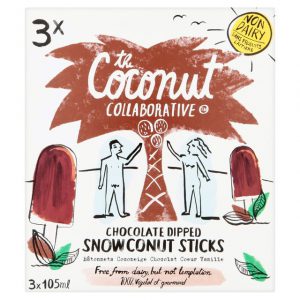Are you suffering from eczema and trying to understand eczema and gut health, as well as the connection between the brain and body? This week, Dr. Robin Miller author of HEALED: Health & Wellness for the 21st Century and medical reporter on NBC discusses the impact eczema has on the gut and how that can affect emotional health.
By Dr. Robin Miller (bio below)
What is the gut-brain connection?
The gut is considered by many to be the second brain. When there is distress in the gut, it affects the brain and conversely when someone is distressed it can affect the gut. We have all experienced “butterflies” in our stomach with nervousness and anxiety. In reverse, abdominal discomfort can cause anxiety and upset. Migraine headaches often are accompanied by nausea and vomiting. The connection is close and almost immediate.
One of the main reasons for this is the gut is lined with cells that look identical to brain cells when examined under a microscope and function with hormones that are also seen in the brain namely serotonin, dopamine and norepinephrine. This is called the enteric nervous system. It is two thin layers of more than 100 million nerve cells lining the gut from the esophagus to the rectum.
It controls digestion, swallowing, release of enzymes to break down food and helps with absorption of nutrients. Research is finding irritation in this system may actually trigger mood changes when the gut is unbalanced as in irritable bowel syndrome.
How does gut health impact someone with eczema?
The gut bacteria or microbiome is where much of our immune system resides. In fact, it accounts for 80% of our immunity. An unhealthy gut exacerbates eczema, an autoimmune disease. This is the eczema and gut health connection. When the microbiome is healthy, the walls of the gut are strong. When it is unhealthy, the lining thins and lipopolysaccharide (LPS) leaks out and causes inflammation. This can make the symptoms of eczema worse. In addition, overgrowth of unhealthy bacteria can cause worsening of inflammation. In fact, when patients with the autoimmune disease rheumatoid arthritis are newly diagnosed, 75% are found to have the same type of gut bacteria. A similar correlation has been seen in eczema with a bacterium called Faecalibacterium prausnitzii.
How does our emotional and mental state impact eczema?
Stress and anxiety make just about everything worse and eczema is no exception. When we are stressed our body goes into fight or flight mode. This causes a flood of stress hormones such as adrenaline and cortisol. When we have too much of these hormones, it can suppress our immune system and cause an inflammatory response in the body and skin. People with eczema are particularly susceptible to this type of inflammation. What’s worse is eczema causes stress due to the itch and appearance and stress makes eczema and gut health worse. It becomes a vicious cycle.
The gut-brain communication also plays a role here. Since the brain and the body communicate as a result of the inflammatory response it is no wonder that according to the National Eczema Association, those with eczema are 30% more likely to suffer from depression and/or anxiety than those without eczema.
What steps can someone with eczema do to improve his or her gut and emotional health?
There are many steps that can be taken to improve eczema and gut health. Diet is key. It is essential to improve and heal the gut with a whole food, anti-inflammatory diet. This includes vegetables, fruits, and lean protein and often it is important to avoid gluten and dairy.
For my patients I find it is helpful to check for food sensitivities and allergies.
ILW Recommends: Adverse Food Reactions: Find Out Which Food Test Is Right For You.
It is important to support the health of the microbiome by eating foods that act as prebiotics such as asparagus and leeks. Prebiotics make it to the colon relatively undigested and promote good bacteria. Probiotics are also important to promote healthy bacteria and consist of fermented foods such as sauerkraut and kimchi.
For emotional health as well as healthy gut bacteria, exercise is key. It can help with anxiety and depression and promotes good bacteria. To help with anxiety, cognitive behavioral therapy, psychotherapy and antidepressants can be a lifesaver.
ILW Recommends our series: The Emotional Impact of Eczema
There is another factor, which has come to light as well. This is the gene methylenetetrahydrofolate reductase also known as MTHFR. This is a gene that codes for how we process folate or folic acid in our diet by programming the formation of enzymes needed to convert folate to l-methylfolate in our gut. L-methylfolate is what we need for our body to make dopamine, norepinephrine and serotonin. These are the hormones that help us to feel good and give us energy. Many of us have at least one mutation on this gene and many have two. If that is the case, the treatment is a supplement known as L-methylfolate. I have found for people who have the mutation the treatment is helpful for mood as well as irritable bowel symptoms. Less stress, less moodiness, improved eczema. MTHFR can be checked with a simple blood test or cheek swab.
There is still more to learn about the treatment of eczema, but we do have many tools to improve the symptoms mood and outcome of this condition with more to come in the future!

Bio: An established author (The Smart Woman’s Guide to Midlife and Beyond and Kids Ask the Doctor), Dr. Miller has gathered the knowledge, insights and anecdotes offered in this book over the course of 33 years of treating patients using the principles of integrative medicine. Board certified in Internal Medicine, she trained with Andrew Weil as an Integrative Medicine Fellow at University of Arizona. She is currently Medical Director of Triune Integrative Medicine, a highly innovative integrative medicine clinic in Medford, Oregon. She blogs regularly for Sharecare.com, an interactive health and wellness website founded in conjunction with Dr. Mehmet Oz, where she serves as Executive Advisory Board member. Robin is also a medical reporter and a regular correspondent for KOBI-5, the NBC affiliate in Southern Oregon.
The post Eczema and Gut Health: A Connection Between Brain and Body appeared first on itchylittleworld.com.




